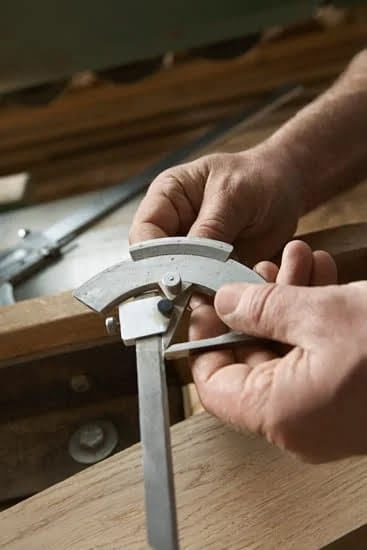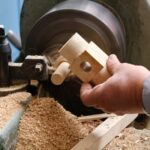Introduction to Industrial Dust Collectors For Woodworking
Industrial dust collectors are essential for keeping the air clean and free from dust particles when undertaking woodworking projects. They provide a number of benefits, such as removing dirt, sawdust, and other solid particulates from the air; increasing safety by reducing or eliminating the inhalation of hazardous airborne particles; improving air quality in general; and helping to maintain a healthy working environment. An important feature to look out for when selecting an industrial dust collector for woodworking is reliable filtration: the higher quality filters will capture more fine particle than filter bags alone, therefore providing better protection against potential health hazards.
When it comes to sizing a dust collector for woodworking projects, there are several factors that need to be considered. These include: -the size of the workshop space; -the type of wood being used and the amount being processed; -the amount of ventilation required, and any existing extraction system in place. A larger capacity machine will typically be required if larger quantities of wood and/or heavier materials are being worked with, or if there are multiple machines running simultaneously. Conversely, a smaller unit may be sufficient for low-volume projects where overall environmental conditions are in good order.
When choosing an industrial dust collector for your woodworking project, it is also important to consider noise level, as this can vary significantly between models. Generally speaking, quieter machines will have lower sound levels than those with louder motors and blowers”ideally you would want one that has less than 75 decibels at optimal operation (without additional insulation in place). Additionally, vibration levels should be taken into account, as some units may have higher amplitudes than others”once again it’s best to aim for units that generate minimal vibration whilst running. By considering both noise and vibration levels when selecting your machine you can ensure that your workspace remains both safe and comfortable throughout all woodworking operations.
Advantages of using an Industrial Dust Collector For Woodworking
Industrial dust collectors for woodworking are one of the most important pieces of equipment that any woodworker can own. Not only do they provide a cleaner, safer working environment, but they also create improved air quality and reduce cleanup times. Dust collectors also help to ensure that workers stay healthy while they’re on the job site.
The installation of industrial dust collectors is relatively simple, with many models able to be used right out-of-the-box without any expensive additional configurations needed. Models exist in all sizes to fit in different shops, including those with limited space or intricate designs where a standard system won’t fit without additional customization. Generally speaking, setup is straightforward and doesn’t require any special training or expertise – just plug it in and it’s ready to go. The ease of use makes them accessible to anyone looking to get the most from their woodworking operation.
Using an industrial dust collector isn’t just good for air quality; it also offers a range of safety benefits. Dust can cause respiratory problems, so having one installed helps make sure everyone around the shop or in the factory has a safe work environment. Furthermore, some dust contains harmful chemicals or other hazardous materials which must be controlled when inhaled. Cleaning up after a job is also much faster and easier when you have an effective dust collector in place; no longer will you need to spend hours manually cleaning up afterward – this increases productivity as well as ensuring better workplace conditions for everyone involved.
Features to Consider When Choosing the Right Industrial Dust Collector
Capacity: The capacity of a dust collector unit is measured in cubic feet per minute (CFM). When buying a dust collector for woodworking, ensure that you buy one with the appropriate CFM rating. This will allow you to select the proper unit for your woodworking needs and ensure that it can handle the amount of dust being produced.
Flexible Hose Connections: In order to ensure that your dust collector is effective, you need to choose a unit with flexible hose connections. A rigid connection can restrict air flow, making it harder for debris to pass through the system. By using flexible hose connections, it’s easier to maintain the flow of air and the performance of your dust collection system.
Exhaust Air Filtration: Woodworking produces very fine particles, which need to be filtered out before releasing into the atmosphere. Many industrial-grade dust collectors feature advanced exhaust air filtration systems to remove these particles when they are released into the atmosphere. Making sure that a filtration system is included in your purchase will help protect employee health and keep our environment clean.
Mobility: Industrial-grade dust collectors come in many shapes and sizes; some units are stationary while others are portable for convenience or mobility across different sites or workspaces . Depending on what type of woodworking business you operate, having mobile dust collectors can add flexibility to your production workflow and save time and money in setting up shop at multiple locations.
Different Types of Dust Collectors
Single-Stage Dust Collectors: These collectors are the most basic and economical type of dust collectors. They are equipped with a motor, filter bag, and fan that forces air through the filter-bag to collect wood particles in the airstream. This type of collector is ideal for hobbyists or small shop applications since they are very affordable and easy to set up.
Two-Stage Dust Collectors: This type of dust collector is more powerful than a single stage unit. It uses two filters to capture larger particles before they enter the system, which helps keep the main filter bag cleaner for longer life. Two-stage collectors are best suited for larger shops where heavier duty work is being done.
Portable Collectors: Portable collectors can be placed wherever needed on a job site without having to worry about permanent installation. These units usually come with wheels, handles, and hose attachments so they can easily be moved around as needed. portable collectors are great for smaller shop spaces or areas where it isn’t feasible to install a larger collector unit.
Multi-Stage Collectors: Multi-stage collectors use several filters in order to catch fine wood particles from being exhausted from the machine or workspace area into the surrounding environment. The overall effectiveness of these systems is improved since there are several stages of collection taking place instead of just one stage like with single stage units. They take up more space than other types but often provide better air filtration when dealing with a lot of dust created from woodworking activities.
Maintenance and Care of Industrial Dust Collectors For Woodworking
Regular Cleaning and Filtering of Industrial Dust Collectors For Woodworking: It’s important to regularly clean and filter industrial dust collectors for woodworking. Doing so will help to ensure a clean, safe work environment for your staff as well as limit potential downtime. A regimen of periodic cleaning should involve emptying the collection bin and using compressed air to blow out any built up debris in the piping. To maximize efficiency, filters should be changed or cleaned based on their manufacturer’s instructions or whenever pressure drops occur from clogged filters.
Motor Maintenance of Industrial Dust Collectors For Woodworking: Periodic maintenance should always be done on the motors in industrial dust collectors for woodworking such as checking their oil levels, measuring amp draw, taking resistance readings of bearings, inspecting seals and lubricating moving parts when necessary. Properly maintained motors will help keep systems running smoothly and minimizes downtime while ensuring they operate at peak efficiency most of the time.
Replacing Filters in Industrial Dust Collectors For Woodworking: In addition to regular cleaning and filtering, it’s also important to replace your industrial dust collector’s filters from time to time. Substituting new filters in an existing collector allows for improved airflow and air quality throughout the work space by eliminating any particles that may have been missed during a standard cycle of cleaning and filtering. Additionally, this practice can reduce stress on other components within the collector by more easily removing the build-up that has been accumulating over time.
Alternatives to Industrial Dust Collectors For Woodworking
Vacuum Systems: A vacuum system is one of the most efficient dust collectors used for woodworking. It attaches to either a saw table or router table, where it pulls down fine dust particles through a hose. The air drawn in through the vacuum is then typically passed through a filter before being exhausted. This type of system can be an effective way of collecting larger pieces of debris, as well as finer dust particles.
Air Filters Systems: Air filter systems come in various types and sizes that allow for filter + dust capture from saw tables, lathes, routers, shapers and more machines. Air filter systems also prevent airborne fine dust from entering the surrounding environment, making them safer to operate than other methods. Air filters can often be self-cleaning, using air passing backflow for automatic filtration and removal of collected dust particles.
Local Exhaust Vents: These vents are very popular in industrial woodworking settings because they work by creating a large flow of air away from the working area. This not only shields you from fumes and unpleasant odors but also redirects excess chips and even some small particles created during particular functions such as sanding or sharpening processes to another appropriate location such as an outside garbage can or an offsite disposal location.
Conclusion
Industrial dust collectors are the best choice for woodworking because they provide comprehensive filtration, durability and powerful performance. Unlike other approaches such as vacuums which can easily become clogged or overwhelmed by larger job sites, industrial dust collectors are designed to filter fine lumber particles, sawdust, and other debris that escapes typical clean-up techniques. They also feature highly-durable metal components and advanced engineering which ensure the long-term reliability of the collector regardless of its application. Industrial dust collectors are also capable of providing large amounts of suction power in order to quickly clear a site without reducing efficiency or productivity. In addition to their impressive filtration abilities, industrial dust collectors also include features such as self-cleaning functions, adjustable fan speeds, and multiple collection bags for convenience. All of this makes them an ideal choice for anyone looking for an effective solution to their woodworking needs.

Hi everyone! I’m a woodworker and blogger, and this is my woodworking blog. In my blog, I share tips and tricks for woodworkers of all skill levels, as well as project ideas that you can try yourself.





